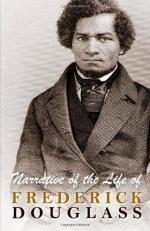It is certainly a very remarkable fact, that one of the most efficient advocates of the slave population, now before the public, is a fugitive slave, in the person of Frederick Douglass; and that the free colored population of the United States are as ably represented by one of their own number, in the person of Charles Lenox REMOND, whose eloquent appeals have extorted the highest applause of multitudes on both sides of the Atlantic. Let the calumniators of the colored race despise themselves for their baseness and illiberality of spirit, and henceforth cease to talk of the natural inferiority of those who require nothing but time and opportunity to attain to the highest point of human excellence.
It may, perhaps, be fairly questioned, whether any other portion of the population of the earth could have endured the privations, sufferings and horrors of slavery, without having become more degraded in the scale of humanity than the slaves of African descent. Nothing has been left undone to cripple their intellects, darken their minds, debase their moral nature, obliterate all traces of their relationship to mankind; and yet how wonderfully they have sustained the mighty load of a most frightful bondage, under which they have been groaning for centuries! To illustrate the effect of slavery on the white man,—to show that he has no powers of endurance, in such a condition, superior to those of his black brother,—Daniel O’CONNELL, the distinguished advocate of universal emancipation, and the mightiest champion of prostrate but not conquered Ireland, relates the following anecdote in a speech delivered by him in the Conciliation Hall, Dublin, before the Loyal National Repeal Association, March 31, 1845. “No matter,” said Mr. O’CONNELL, “under what specious term it may disguise itself, slavery is still hideous. It has a natural, an inevitable tendency to brutalize every noble faculty of man. An American sailor, who was cast away on the shore of Africa, where he was kept in slavery for three years, was, at the expiration of that period, found to be imbruted and stultified—he had lost all reasoning power; and having forgotten his native language, could only utter some savage gibberish between Arabic and English, which nobody could understand, and which even he himself found difficulty in pronouncing. So much for the humanizing influence of the Domestic institution!” Admitting this to have been an extraordinary case of mental deterioration, it proves at least that the white slave can sink as low in the scale of humanity as the black one.




